
Sorry about the unusually long hiatus between posts, campers. I shan’t bore you with long-winded justifications; suffice it to say that the Grumpy Relative is once again home from the hospital, and thus so am I. Many thanks to those of you who sent good wishes during the last few weeks.
Now that my head is back in the game, so to speak, I’m all ready to hunker down for a nice, lengthy winter’s foray into matters of craft. There’s nothing like a dark and stormy night for manuscript revision, I always say.
Stop cringing — revision is a necessary phase of the writing process. But let’s face it, nobody likes being told to re-work a manuscript, but if you ever hear any professional writer say that his first drafts regularly get published as is, well, you might want to muffle your laughter as you back swiftly away from him. Because as any pro could (and should) tell you, revision frequently takes up most of the writing time the author devotes to a published book.
Cool compresses applied to the head will help reduce the urge to curl up into a ball and moan at the very thought.
Frankly, I understand that reaction: it would be genuinely marvelous if all a talented writer had to do was to wait until inspiration hit, take dictation from the muses, and mail the result off to an agent or editor. It would be equally fantastic if agents routinely said to their clients, “You know, I would like to see a few changes in this manuscript you’ve just spent a couple of years slaving over, but hey, the editor who picks it up will probably have a different opinion, so let’s go ahead and send it out as is, okay?” And it would be downright miraculous if the third editor handling a book project (because the editor who originally acquired it has moved since to another publishing house and the second was laid off last week) was satisfied with the changes editors 1 and 2 had already convinced the author to make before the book joins the print queue.
It would also be great if cows gave chocolate milk to passing children, long-battling neighbors spontaneously realized that their deep-seated differences were unimportant, and my cats stopped staring at me indignantly because I went out of town (for a good cause, felines!), instead devoting themselves to more worthy pursuits like being comforts and joys, scampering merrily, or finding a cure for cancer. Yet somehow, I don’t think any of these things are likely to become the prevailing reality anytime soon.
Try not to take it personally. Having to revise one’s work in order to please others is, both unfortunately and fortunately for writers everywhere, simply a fact of life for a working author.
I know, I know — embracing the necessity of revision (or, for some aspiring writers, the imperative to write not only to please oneself, but a potential reader) is easy to advise, hard to pull off. Yet since writers have to be so tough to make it in this business, it’s tempting for those of us who advise, teach, and otherwise cajole the aspiring into presenting their words and ideas professionally to forget that writers are actually finely-balanced musical instruments. It’s genuinely hard to create when we’re thrown for a loop by an unexpected request to change something fundamental in our manuscripts.
Today’s loop-generator was a fairly common one for givers of feedback, professional and friendly both, to be thrown, so I think it would be useful for me to write about it. (And if not, hey, I blog pretty much every day, so if it turns out that I’m just being self-indulgent today, I can always be purely useful again tomorrow, right?)
As a freelance editor, I am EXTREMELY selective about whose work I read. I have been exchanging chapters with my own first readers for years, and professionally, I will only work with clients I feel are bursting with talent, but even then, if the subject matter or genre is not a good fit with my tastes, or if I don’t think I can help a writer get published within a reasonable amount of time, I will refer him on. The vast majority of the time, my interactions with other writers are a joy. Really. I enjoy giving feedback quite a bit, even when I am charged with the task of helping an author incorporate a revision request from an agent, editor, or dissertation advisor in such a way that it will not interfere too much with the original vision.
Okay, I’ll grant you, it doesn’t SOUND like a whole lot of fun. But usually, it is: I love good writing, and like any competent editor, the sight of anything that detracts from good writing’s presentation makes me foam at the mouth and reach for a pen.
Every so often, though, I’ll run into someone who thinks I’m just making up the rules of standard format, or norms of academic argumentation, or even the usual human expectation that within a story, each subsequent event will follow logically upon the one before it. (Blame Aristotle’s POETICS for that last set of rules, not me.) Recently, I was lambasted at length for having had the gall to point out that someone’s Chapter Two might not be utterly clear to a reader that did not have the author reading over his shoulder, explaining verbally the choices made on the page.
Long-time readers of this blog, sing along with me here: when you submit a manuscript, all that matters is what is on the page. If ANYTHING in your first 50 pages is not perfectly comprehensible without a “Yes, but I explain that in Chapter Four”-type verbal clarification, rework it.
Please. Thank you.
Now, since it’s my job — or ethical obligation, in cases of volunteer feedback-giving — to point out precisely this sort of problem wherever it appears in a manuscript, I am always a trifle nonplused when I encounter a writer who thinks I’m only flagging it out of some deep-seated compulsion to be hurtful. Again, I am very selective about whose pages I read, and I burn to be helpful: as any of my clients could tell you, it’s not uncommon for my commentary on a book to be longer as most of the chapters. I try to be thoughtful, giving my reasons for any major suggested change with a specificity and completeness that makes the Declaration of Independence look like a murmur of vague discontent about tea prices.
Obviously, this level of feedback is not for everybody; one of my best friends in the biz refers to me affectionately as the manuscript piranha, but still, she lets me read her work. Because, honestly, is there anything worse than handing your work-in-progress to someone who just says, “Oh, it was fine,” or “Oh, it just wasn’t my kind of book,” without explaining WHY? I think completeness of feedback implies a certain level of devotion on my part to making the manuscript in question the best book it can possibly be.
Yet the Chapter Two-producer informed me that, to put it mildly, I was incorrect about this. Apparently, I only suggest changes as a most effective means of ripping the author’s heart from his chest, stomping upon it, pasting it back together, sautéing it in a nice balsamic vinegar reduction, then feeding the resulting stew to, if not the author, than at least the neighbor’s Rottweiler.
This was for a manuscript I LIKED, incidentally. I had made a grand total of ONE suggested change, in the midst of reams and reams of glowing praise. And although it pains me to point it out to writers as open-minded and eager to improve their craft as my readership, it’s not at all uncommon for writers inexperienced with feedback to respond in this manner.
So what did I do? What editors and agents moan privately to one another about having to do for their clients all the time, be preternaturally patient until the “But it’s MY work! It MUST be perfect!” tantrum petered out. Until then, further discussion was simply pointless.
Because, in the first moments after receiving critique, creative people are often utterly, completely, fabulously unreasonable about it. They not only want to shoot the messenger – they want to broil her slowly on a spit over red-hot coals like a kabob, and THEN yell at her.
Fear of this stripe of reaction, in case you were wondering, is the most common reason most people will give only that very limited “Oh, it was fine” feedback after reading a friend’s manuscript. They’re just trying to keep their heads attached to their bodies, rather than skewered upon some irate writer’s pike.
It’s also the usual excuse — which you may believe or not, as you see fit, considering the source — that most agents give for why they send out form letter rejections, rather than specific, thoughtful replies to requested submissions. Or even not respond to a submission at all.
Their stated reason for form letter responses — or non-responses — to queries, of course, is sheer volume: they don’t have time to reply to each individually. Fair enough, or if not, at least understandable. It’s harder to make the case in favor of form-letter (or no letter) rejections of requested partial or full manuscript submissions, because, obviously, if they have the time to read 50 pages, they have time to scrawl a couple of lines about how it could be improved.
Or, as insightful and curious reader Jenyfer pointed out in the comments recently:
Why it is that once an agent asks to see the material and the material is actually sent, the agent can’t be bothered to respond? It’s one thing to ignore an unsolicited query / partial, but if they actually request it, you would think they could at least say “thanks, but no thanks” if they aren’t interested. Surely I’m not the only one this has happened to?
No, Jenyfer, you’re most certainly not, and it’s an excellent subject for writerly speculation: non-responses are rapidly becoming not only acceptable, but in many agencies, the norm. And even those increasingly rare agents who do respond with a direct yes or no seldom give a specific reason for rejection beyond I just didn’t fall in love with this or the ubiquitous this material does not meet our agency’s needs at this time.
This may seem like a cold, impersonal, or even jaded response, but to be fair, there is a pretty good reason many professional readers don’t want to give writers specific rejection reasons: they don’t want to engender an angry response that might turn into an endless debate about the merits of a book they’ve already decided, for whatever reason, that they do not want.
Don’t believe that’s a realistic possibility? Try suggesting to a sensitive soul that his Chapter Two could use a little work, then duck.
Since most writers are peaches and lambs and every other kind of pacific, cooperative kind of entity you can think of most of the time, the fear of a very negative reaction is perhaps overblown. Certainly in the case of agencies that simply do not respond at all if the answer is no. Most of us are perfectly capable of taking a little constructive criticism in the spirit it is intended. But every so often, some author loses it — and for that author’s display of temper, alas, we all pay.
That’s the official logic, anyway. Although I’d be lying if I didn’t add here that sending out form-letter rejections is quite a bit less expensive and employee time-consuming than mailing or e-mailing off individually-crafted nos — and that not responding at all is undoubtedly cheaper still.
If that seems like an affront to art, please remember: agencies make no money at all from screening queries, or even submissions. (Not a reputable agency, anyway, one that does not charge to consider manuscripts. For some insights on the other kind, please see the FEE-CHARGING AGENCIES category on the archive list at the lower right-hand corner of this page.) Agencies make money when they sell their clients’ manuscripts to publishers — and receive a percentage of royalties after the books have made enough to cover the advance. (If that made no sense to you, or if you were not aware that advances are pre-payments of royalties, and thus no further royalties are paid until the publisher has made back the advance, please see the posts under the aptly-named ADVANCES category at right.)
So now you know: if you want to establish yourself as a dream client in the eyes of the average agent or editor, who tends to hide under a chair after giving even the mildest feedback to her clients, you might want to greet the first emergence of any revision request with apparent tolerance; give yourself time to calm down before you argue. To buy yourself time, say something like, “Wow, what an interesting idea. I’ll have to think about that. Thanks.”
Then take the rest of the day off, and don’t so much as peek at your manuscript again until you’ve had a chance to calm down.
Say this, even if in the moment, the suggestion proffered seems to you like the worst idea since Hannibal decided to march all of those elephants over the Alps to get at Rome. Because at that precise second, you are not just an individual writer, concerned with the integrity of your own manuscript: you are representing all of us. Show that, contrary to our stereotype in the industry as touchy hotheads unwilling to consider changing a single precious word, most of us really are capable of taking a little criticism.
Admittedly, my readers all acting this beautifully in the fact of critique probably sounds better to me right now than it might had I not recently been scathed for trying to help out. Whenever I am confronted with a super-defensive critique-rejecter, I must confess, I seldom think of cooperative, thoughtful revisers with any abhorrence.
Feedback, though, and the revision process in general, ought to be treated with more respect by everyone concerned. There really ought to be a muse, if not an ancient Greek goddess, of manuscript revision, someone to whom we can pray for patience and tolerance in getting feedback on our work.
For working writers — especially those who would like to make something resembling a decent living from their keyboards — a muse of revision might conceivably make better sense to court than a muse of inspiration. After all, all of us who write works longer than a postcard must inevitably worship in private at this muse’s altar. Why should the initial inspiration gals get all the credit, when so much of the work that makes a book wonderful is in the re-editing?
Editing gets a bad rap, and self-editing even worse. You can’t spend half an hour in a gathering of more than three serious writers without hearing someone moan about it. Oh, it’s so hard; oh, it’s so tedious. Oh, I’m sick to death of revising my manuscript. If I have to spend another instant of my life reworking that one pesky sentence, I shall commit unspeakable mayhem on the nearest piece of shrubbery.
We don’t describe the initial rush to write that pesky sentence that way, though, do we? Our muse leaps out at us, flirts with us, seduces us so effectively that we look up a paragraph later and find that six hours have gone by. Our muse is the one that gives us that stunned look in our eyes that our loved ones know so well, the don’t-call-me-for-breakfast glaze that tells the neighborhood that we will not be available for normal human interaction for awhile.
Ah, but the muses of initial inspiration don’t stick around for very long, do they? No, the flighty trollops too often knock you over the head with a great idea, then leave you in the lurch in mid-paragraph. Do they call? Do they write? Don’t they know we worry ourselves sick, we writers, wondering if they are ever going to come back?
Not so Ataraxia, the muse of revision. (Hey, I came up with the notion, so I get to name her. According to the ancient philosopher Sextus Empiricus — I know, I know; you can’t throw a piece of bread at a party these days without hitting someone chatting about Sextus Empiricus, but bear with me here — ataraxia is the state of tranquility attained only at the end of intense self-examination. Ataraxia is the point at which you stop second-guessing yourself: the ultimate goal of revision, no?)
Ataraxia yanks you back to your computer, scolding; she reads over the shoulder of your dream agent; editors at major publishing houses promise her their firstborn novels. While being a writer would be a whole lot more fun if completing a good book could be accomplished merely by consorting with her flightier muse sisters, party girls at heart, sooner or later, we all need to appeal to Ataraxia for help.
Best to stay on her good side: for starters, let’s all pledge not to scream at the kind souls who give us necessary feedback. Yes, I suspect Ataraxia would really enjoy that sort of sacrifice.
I’ll confess, I have not always treated Ataraxia with respect myself. How tedious revision is, I have thought from time to time, inventing reasons not to sit down and put in a few hours of solid work on a project. What a bore, to have to go back to a book I consider finished and tweak it: hour after hour of staring at just a few sentences, changing perhaps an adjective or two every ten minutes. Yawn.
Over time, though, I have started to listen to what I was actually telling myself whenever I complained about the revision process. It wasn’t that I objected to putting in the time; there have been few days in the last decade when I haven’t spent many hours in front of my computer or scribbling on a notepad; I’m a writer, so that’s what I do. Nor was it that I felt compelled to rework my novel for the fiftieth time, or, in cases where I’ve been incorporating feedback, that I thought the changes would be bad for the book.
No, my real objection, I realized, is that I expected the revision process to bore me to tears. Am I alone in this?
But Ataraxia watches over even the most ungrateful of writers, so she whacked me over the head with an epiphany: a manuscript is a living thing, and to allow it to change can be to allow it to grow in new and exciting ways.
So now I know: whenever I start procrastinating about necessary revisions, it is a pretty sure sign that I had been thinking of my text as something inert, passive, a comatose patient who might die if I inadvertently lopped off too much on the editing table. What if, instead of thinking of revision as nitpicking, I used it to lift some conceptual barriers within the book? What if I incorporated my first readers’ suggestions about my memoir in a way that made the book better? Not just in terms of sentences and paragraphs, but in terms of content?
Just a suggestion: instead of regarding feedback as an attack upon the book, a foreign attempt to introduce outside ideas into an organically perfect whole or a negative referendum upon your abilities as a writer, perhaps it would be more productive to treat critique (your own included) as a hint that maybe the flagged section could use an influx of fresh creativity.
Try to move beyond just making grammatical changes and inserting begrudging sentences where your first readers have asked, “But why is this happening here?” If you have stared at a particular sentence or paragraph for hours on end, changing it and changing it back — c’mon, you know we all do it — naturally, you’re going to get bored. Naturally, you are going to loathe that kind of revision.
But the next time you find yourself trapped in that kind of editing loop, set the text you’re working on aside for a few minutes. Pick up a pen (or open a new document) and write that section afresh, in new words, as if for the first time.
No peeking at your old text, and no cheating by using sentences you recall writing the first time around. Allow yourself to use different analogies, to reveal character and event differently. Give yourself time to play with your ideas and the way you want to say them before you go back to the original text.
Then walk away for ten minutes. Maybe you could do some stretching exercises, to avoid repetitive strain injuries, or at least take a stroll around your house. Feed the cat. Plot a better way to get legions of elephants over the Alps. Anything will work, as long as it gets your eyes off your own words for a while.
And then, when you return, read the original version and the new. You probably will not want to substitute one for the other entirely, but is there any part of the new version that could be incorporated into the old in an interesting way? Are there sentences that can be switched productively, or some new ones that could be added to the old? Are there arguments or character points in the new that would enliven the old?
What you’re doing with this exercise is transforming revision from a task where you are fine-tuning something essentially finished into an opportunity to infuse the manuscript with fresh ideas at problematic points. Conceptually, it’s a huge difference, and I guarantee it will make the revision process a lot more fun.
As Ataraxia wants it to be, I suspect.
Okay, I feel less self-indulgent now: I think I have wrested some good, practical advice out of my very, very bad experience with that Chapter Two-hugger. Naturally, unlike your garden-variety agent or editor, I’m not going to give up on this writer because of a single loss of temper. Nor, unlike the average writer’s friend with a manuscript, am I going to let the one writer who implied that my feedback on his work was the worst idea since Stalin last said, “I know! Let’s have a purge!” discourage me from giving feedback to others.
But please, the next time you are confronted with feedback that makes your blood boil, take a deep breath before you respond. Think about me, and about Ataraxia, and force yourself to say, “Gee, what an interesting notion. May I think about it, and we can talk about it later?”
Then go home and punch a pillow 700 times, if you must, but please, don’t disembowel the messenger. She may be bringing you a news flash from Ataraxia.
Keep up the good work!









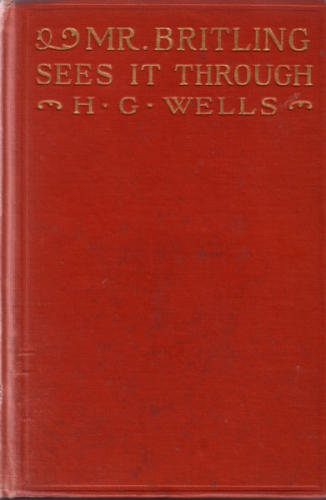





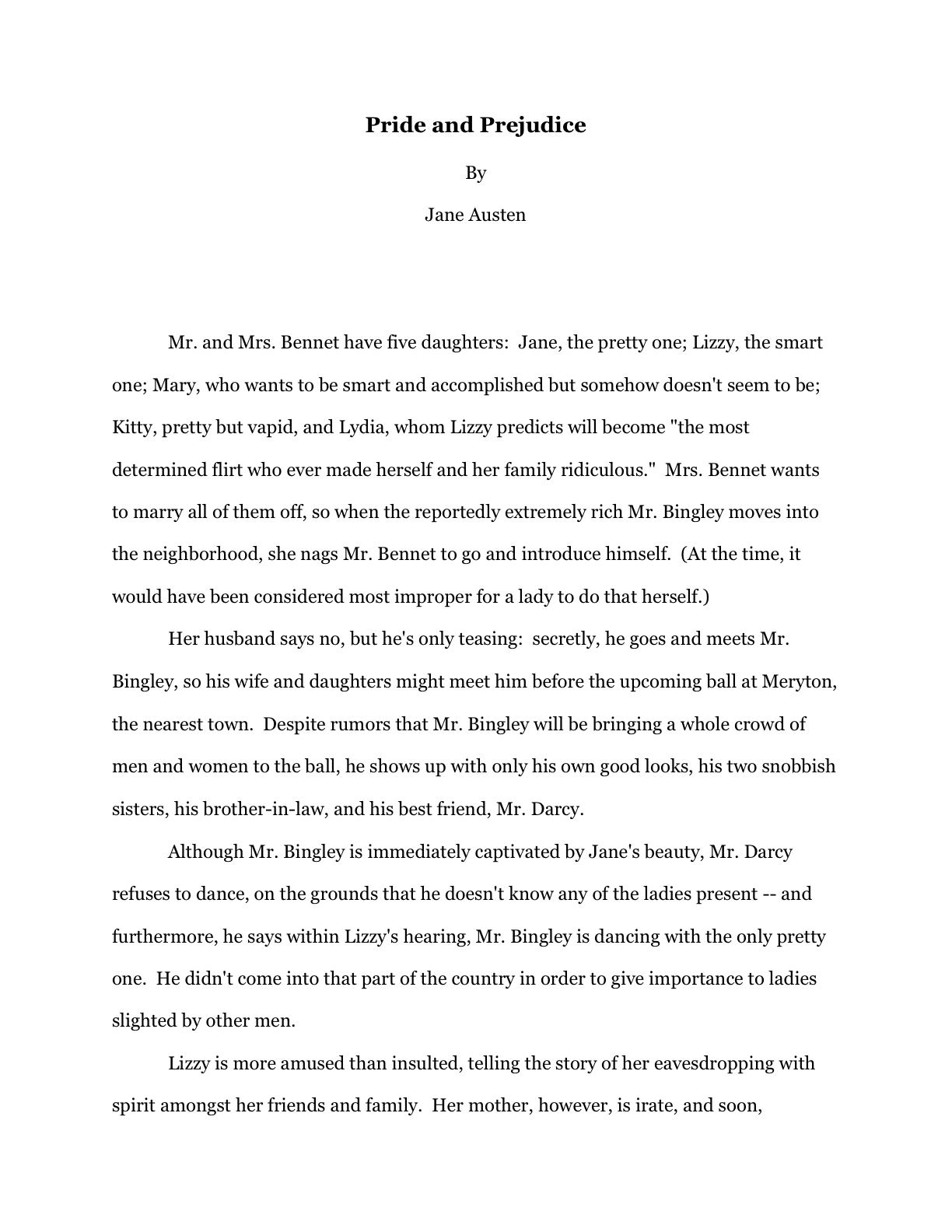
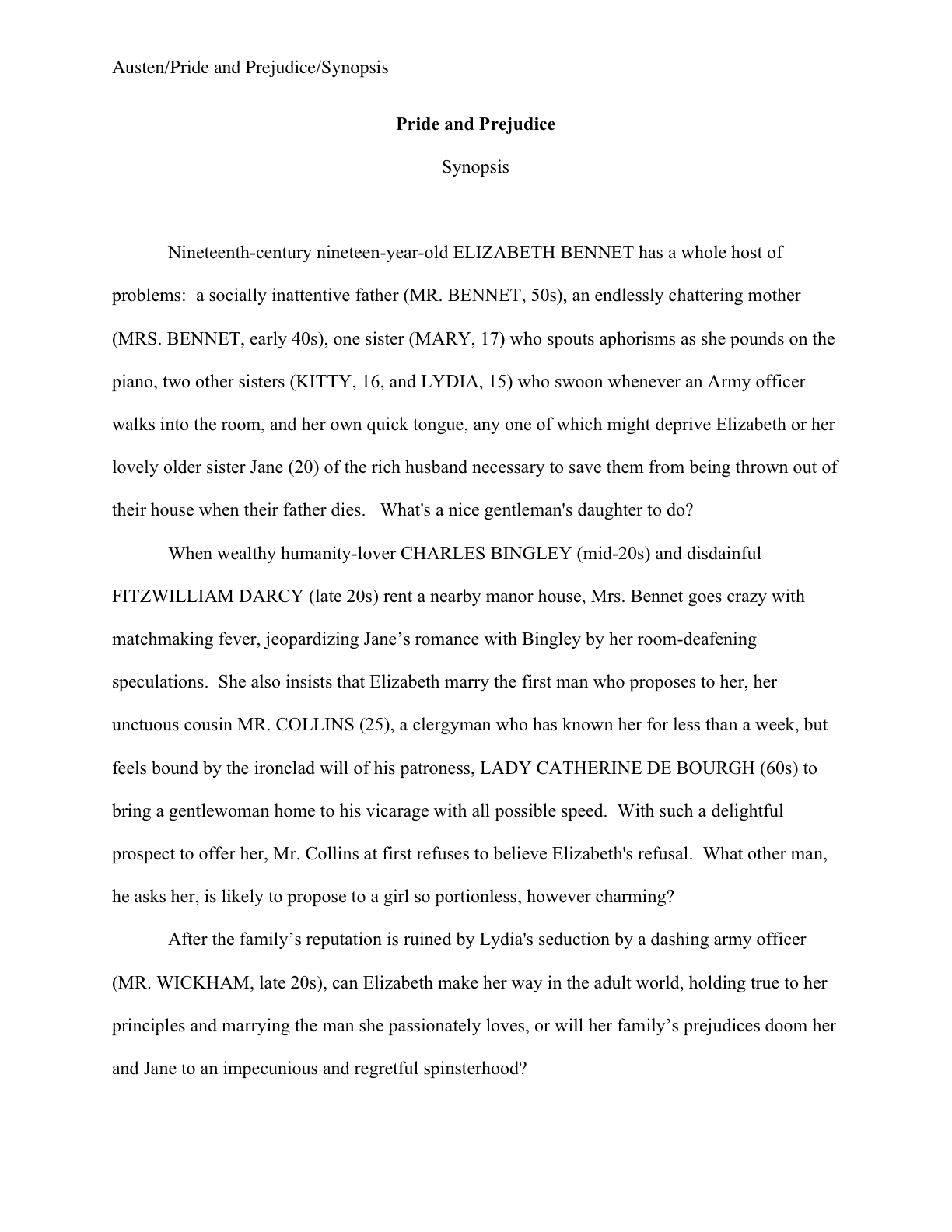
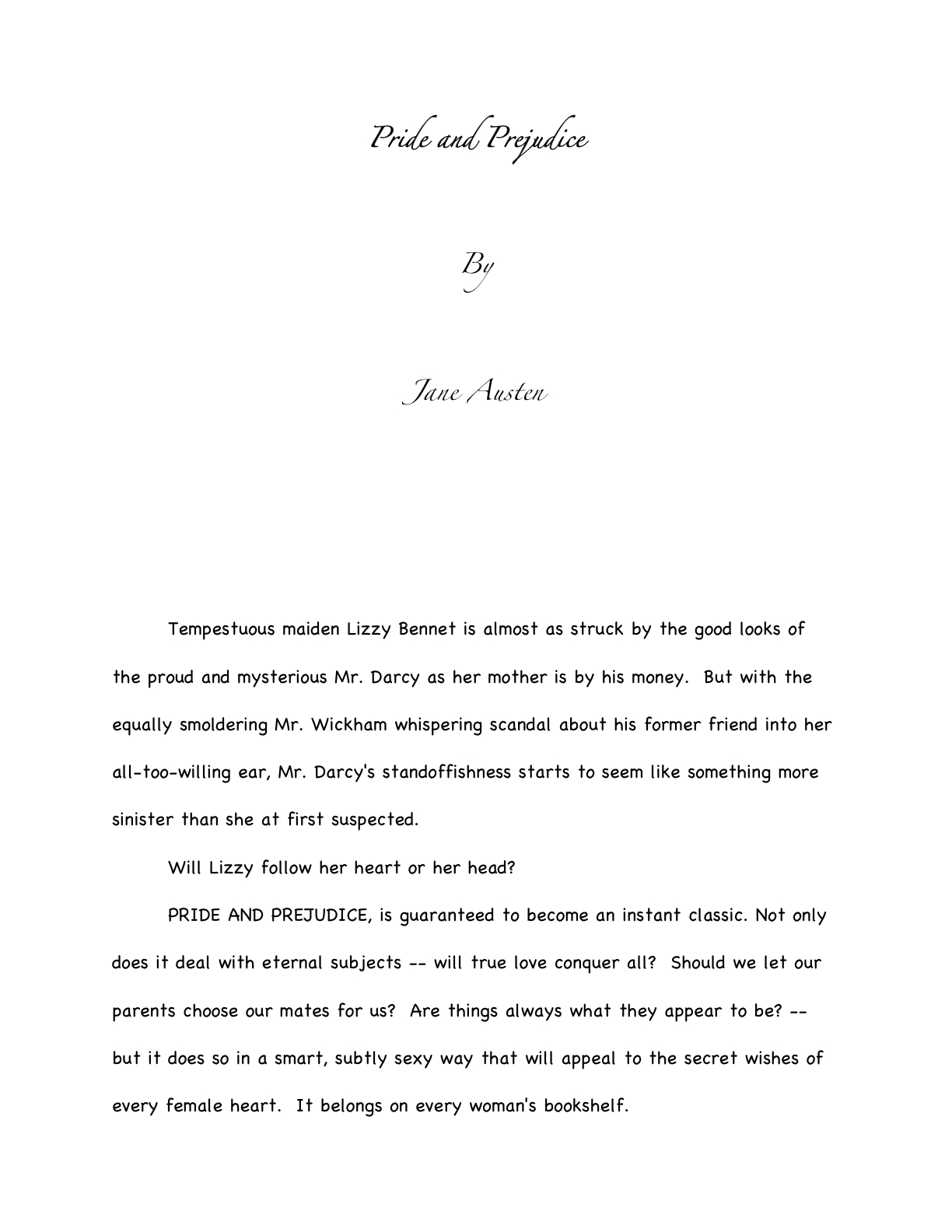

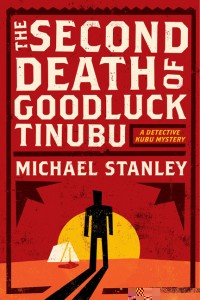
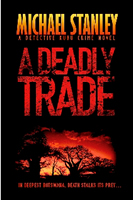 How can a man die twice?
How can a man die twice?
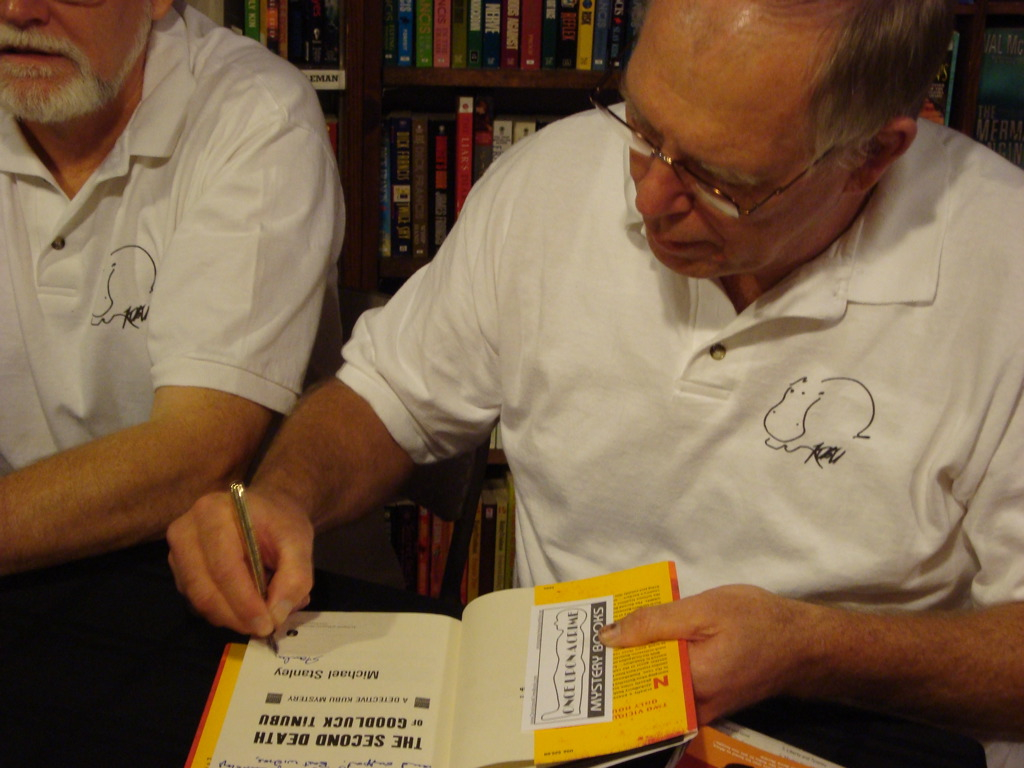
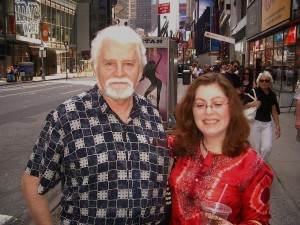




 Michael Stanley is the writing team of Michael Sears and Stanley Trollip.
Michael Stanley is the writing team of Michael Sears and Stanley Trollip. 


 unfortunately, writers all too often automatically assume that it’s the idea of the book being rejected, rather than a style-hampered querying letter or a limp synopsis.
unfortunately, writers all too often automatically assume that it’s the idea of the book being rejected, rather than a style-hampered querying letter or a limp synopsis.
